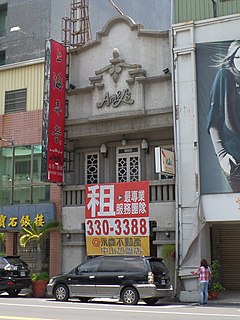 W
WFinance is a term for matters regarding the management, creation, and study of money and investments. Specifically, it deals with the questions of how an individual, company or government acquires money – called capital in the context of a business – and how they spend or invest that money. Finance is then often divided into the following broad categories: personal finance, corporate finance, and public finance.
 W
WIn financial accounting, an asset is any resource owned or controlled by a business or an economic entity. It is anything that can be used to produce positive economic value. Assets represent value of ownership that can be converted into cash . The balance sheet of a firm records the monetary value of the assets owned by that firm. It covers money and other valuables belonging to an individual or to a business.
 W
WThe Capital Markets Union (CMU) is an economic policy initiative launched by the former president of the European Commission, Jean-Claude Junker in the initial exposition of his policy agenda on 15 July 2014. The main target was to create a single market for capital in the whole territory of the EU by the end of 2019. The reasoning behind the idea was to address the issue that corporate finance relies on debt and the fact that capitals markets in Europe were not sufficiently integrated so as to protect the EU and especially the Eurozone from future crisis. The Five Presidents Report of June 2015 proposed the CMU in order to complement the Banking union of the European Union and eventually finish the Economic and Monetary Union (EMU) project. The CMU is supposed to attract 2000 billion dollars more on the European capital markets, on the long-term.
 W
WThe principle of equivalence in financial services at the European Union (EU) level is one of the instruments the Commission has at its disposal to carry out its international strategy for financial services. The principle of equivalence is materialised through an equivalence decision issued by the European Commission to a targeted country that it judges fit to have access to the European Market in financial services. The decision is unilateral, non-reciprocal and affects the targeted third country in regard to particular activities or services to which the decision is intended. The equivalence decision is issued through an assessment of the third country regulations in relation to particular services or activities in the EU. In order to do so, the Commission bases its decision on 40 provisions of EU law. Important to note, perhaps is the fact that not all have been availed but over 250 equivalence decisions were made targeting more than 30 countries worldwide.
 W
WCommunity benefit societies were historically known as industrial and provident societies (IPS) which are legal entities for a trading business or voluntary organisation in the United Kingdom, the Republic of Ireland, and New Zealand. The name is still used in New Zealand, the Republic of Ireland and within the UK in Northern Ireland.
 W
WRenting, also known as hiring or letting, is an agreement where a payment is made for the temporary use of a good, service or property owned by another. A gross lease is when the tenant pays a flat rental amount and the landlord pays for all property charges regularly incurred by the ownership. An example of renting is equipment rental. Renting can be an example of the sharing economy.
 W
WChinese shadow banking refers to underground financial activity that takes place outside of traditional banking regulations and systems. China has one of the largest shadow banking industries with approximately 40% of the country's outstanding loans tied up in shadow banking activities. Shadow banking in China arose after the People's Bank of China became the central bank in 1983. This encouraged commercial enterprises and private investors to place more of their money in financial products, causing the banking industry to grow.